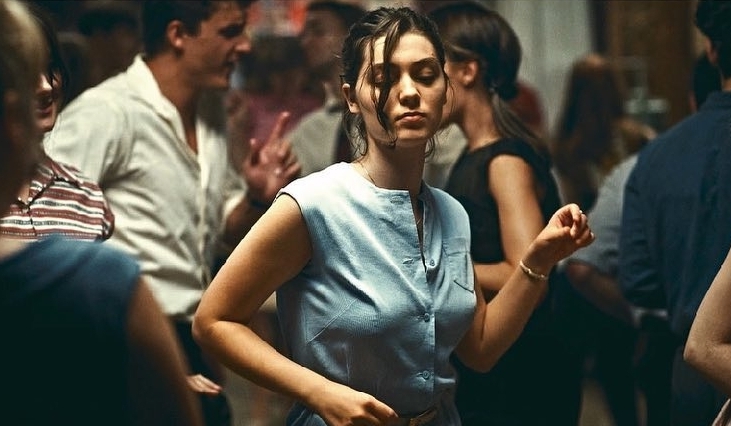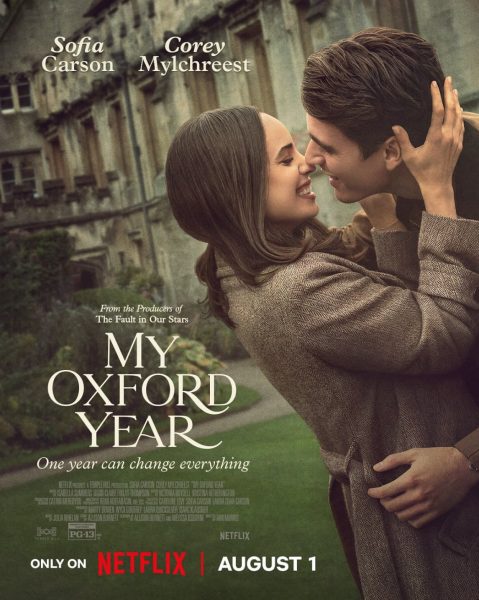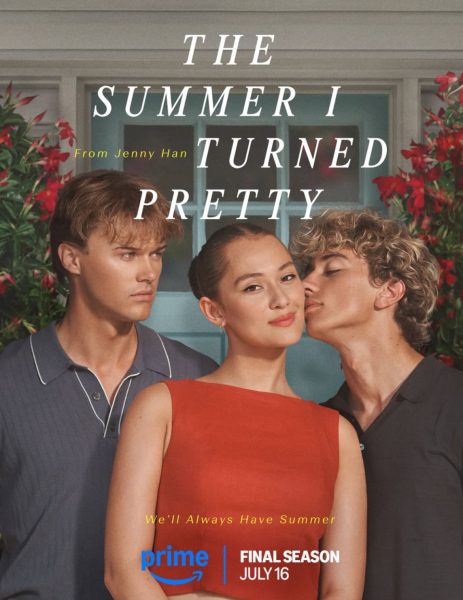What’s Happening in “Happening”?
“Accept it. You have no choice,” a doctor solemnly tells his patient at nine weeks pregnant. Audrey Diwan’s “Happening” hit the United States at a fitting time, almost exactly when Roe v. Wade was overturned. For context, in June 2022, the Supreme Court revoked the sole piece of legislation that made abortion federally legal in the United States. The French drama “Happening” eerily parallels our new America as we follow a young girl desperately trying to terminate her pregnancy in 1963 France. Although Diwan’s film adaptation may be too heavy or mature for some audiences, it crucially highlights an invisible and universal war that women have been fighting: having the right to choose.
23-year-old Anne Duchesne (Anamaria Vartolomei) excels in school and envisions with certainty how her future will look. Compared to other students, she is on top, effortlessly answering challenging questions and performing well on exams. The first 20 minutes of the film are almost boring to watch as Anne meticulously follows her daily routine and has ordinary conversations with school friends and men who catch her eye. However, the film’s pace shifts dramatically when Anne notices a sharp pain in her groin area and decides to visit the doctor. She’s pregnant. As she tries to seek help (get an abortion) from doctors, administrators and friends, she is met with hostility and becomes brutally villainized by the community. This shift in pace clarifies how the unexciting first 20 minutes were necessary to compare Anne’s life before and after her world was turned upside down.
“Happening” perfectly captures the shame, judgment and uncertainty that comes with either being pregnant or being sexually active as a woman, especially in the mid-1900s. The drama’s consistent gray and gloomy color scheme reflects the internal turmoil Anne experiences throughout her unwanted gestation. Vartolomei’s compelling and emotive acting will make you feel like you’re the one who is unexpectedly pregnant. Viewers personally feel anxious when Anne’s grades slip and she starts coming to class unprepared. Similarly, Diwan’s directing geniusly allows us to empathize with the loneliness and isolation Anne experiences as she loses friends and finds herself without companionship. Having once had a thriving social life, Anne is laughed out of the communal bathroom for looking like she has an STD. “Loose women catch that stuff,” one girl sneers, and another adds that they “don’t want that here.” In modern terms, one could describe this shame as “cancel culture,” all for choosing what to do with one’s body.
The shower scene is one I want to underline. Diwan masterfully caters to the audience’s universal discomfort with taking communal showers, especially if one’s body is changing or if they feel insecure about their body. Viewers can feel the cold tension through the screen as Anne walks into the women’s bathroom and is met by the judgmental gazes of her peers. It is important to note that women were (and still are) conditioned to think a certain way about sex and sexual roles, hence the other womens’ icy attitudes. Even Anne’s two closest friends criticize her for bringing up the topic. Diwan indirectly prompts the viewer during this scene to question that if sex were not so taboo for women, and if Anne and her friends had not felt judged for having sexual relations, then perhaps her unwanted pregnancy could have been avoided.
Conclusively, “Happening” is less about being pregnant and more about how one decision can heavily alter the trajectory of someone’s life. Anne knew that having a child would alter her life in a way that she did not want it to. That was reason enough to seek an abortion. I applaud Diwan for not sharing Anne’s backstory as to how she became pregnant. Instead, she focused on Anne’s current inability and lack of desire to care for a child. Anne did not want to give up her future to raise a kid she was unprepared for. Through her journey, Anne teaches us that it is alright to choose yourself and not need a reason. “Happening” sheds light on a hidden struggle for many women. Even if you are not pro-choice, I highly encourage you to give this movie a try. Personally, I gained a better understanding of why women choose to get abortions and also how for the majority, the process itself is a gut-wrenching, humiliating and taxing experience. I implore everybody watching this film to think about a time you did something that completely altered the course of your life and look at others who may be struggling with kinder eyes and less judgmental thoughts.













































































































































































































